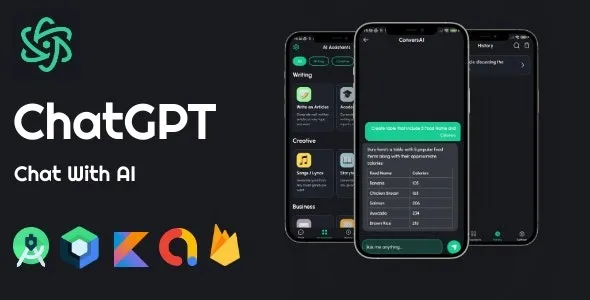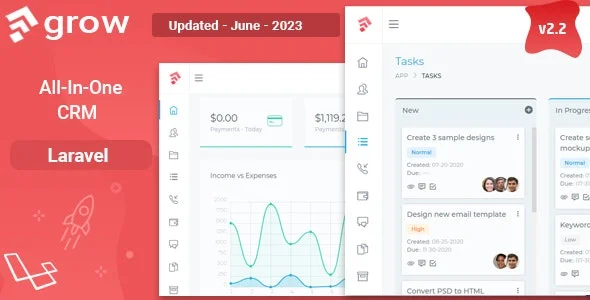Creating a ConversAI ChatGPT AI Native Android Chat App Free Download involves integrating the powerful GPT-3.5 language model into an Android application. This app will allow users to engage in natural language conversations with the AI, providing a seamless and interactive experience. Here’s a guide on how you can develop such an app:
1. Project Setup:
Start by setting up a new Android Studio project. Ensure that you have the necessary dependencies and permissions for internet access.
2. API Key:
To use GPT-3.5, obtain the API key from OpenAI. This key is essential for authenticating your requests to the GPT-3.5 API.
3. Retrofit Library:
Integrate the Retrofit library to handle HTTP requests easily. This will be useful when communicating with the GPT-3.5 API.
gradleCopy code
implementation 'com.squareup.retrofit2:retrofit:2.9.0' implementation 'com.squareup.retrofit2:converter-gson:2.9.0'
4. UI Design:
Create a user-friendly interface for the chat application. Utilize RecyclerView for displaying chat messages and an EditText for user input.
5. Chat Adapter:
Develop a RecyclerView adapter to manage and display chat messages. It should handle both user and AI messages with appropriate styling.
6. Networking:
Set up a networking service using Retrofit to send user input to the GPT-3.5 API and receive AI-generated responses.
javaCopy code
public interface ConversAIAPI { @POST("openai/gpt-3.5/completions") Call<AIResponse> getAIResponse(@Header("Authorization") String apiKey, @Body AIRequest request); }
7. User Input:
Capture user input from the EditText view and send it to the GPT-3.5 API for processing. Display the AI-generated response in the chat interface.
8. AIRequest and AIResponse Classes:
Create classes to represent the structure of the data sent to and received from the GPT-3.5 API.
javaCopy code
public class AIRequest { public String prompt; // other optional parameters } public class AIResponse { public String choices; // other relevant fields }
9. Handle Responses:
Process the responses from the GPT-3.5 API and update the chat interface accordingly. Consider handling different types of responses and formatting them appropriately.
10. Error Handling:
Implement error handling to manage issues such as network errors or invalid API responses. Provide informative error messages to the user.
11. Testing:
Thoroughly test the app, considering various user inputs and scenarios. Ensure that the app handles edge cases gracefully.
12. Deployment:
Once satisfied with the testing, prepare the app for deployment. Optimize code and resources, and consider user experience during the deployment process.
13. Continuous Improvement:
Keep an eye on user feedback and continuously improve the app. Consider refining the AI interaction, enhancing UI/UX, and addressing any reported issues.
By following these steps, you can create a ConversAI ChatGPT AI Native Android Chat App Nulled that leverages the capabilities of GPT-3.5 for engaging and realistic conversations.
ConversAI ChatGPT Changelog
Version 1.4.0 24 / 08 / 2023 - Banner Ads Added - Interstitial Ads Added Version 1.3.0 24 / 08 / 2023 - Moderations API Added - The SafetyNet Issue Fixed - Rate Us Button Added - Landscape Mode Disabled - "Failure! Try again" Error Message Changed With Actual Error Message Version 1.2.0 21 / 07 / 2023 - In App Subscription Acknowledge Issue Fixed - No Longer Shows Buy Buttons Without In-App Subscription Install Completed or Loaded - Default GPT Model Changed To Cheaper One - The Answers Doesn't Show The Comma ( , ) Bug Fixed - Language Change Problem Fixed. Version 1.1.0 15 / 06 / 2023 - Speech to Text Feature Added - Language Change Bug Fixed - Free Message Count Added To Screen - Increase Message Count Added to Constants - Document Updated






